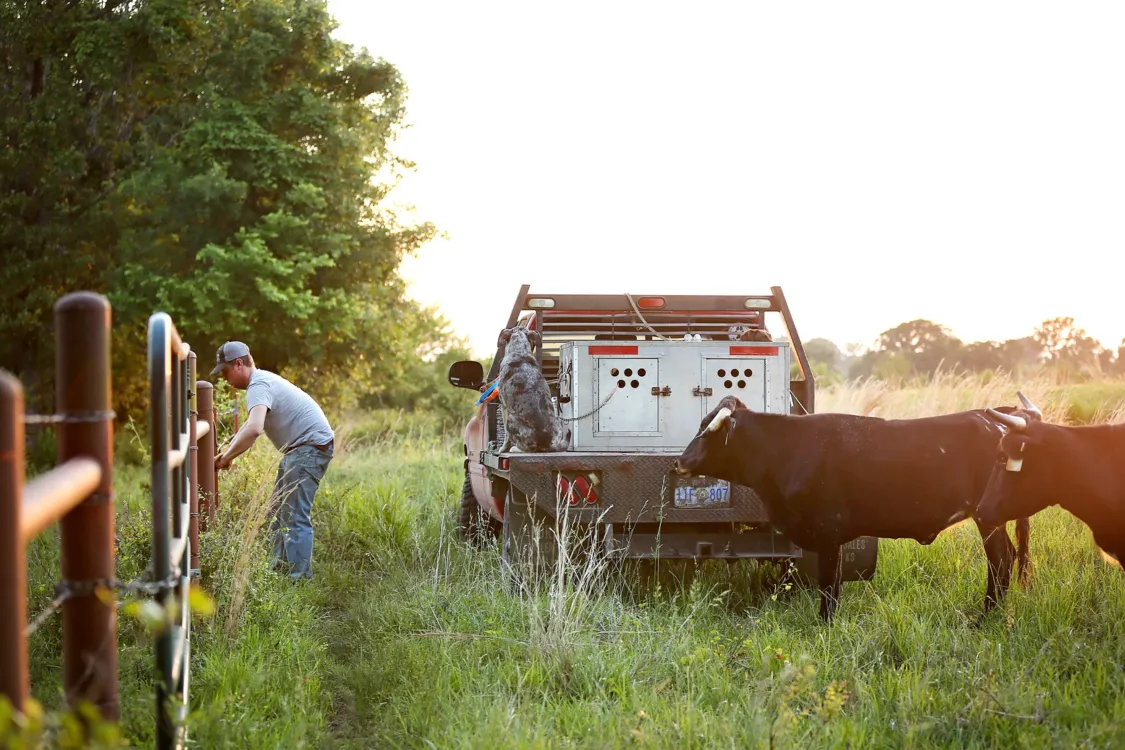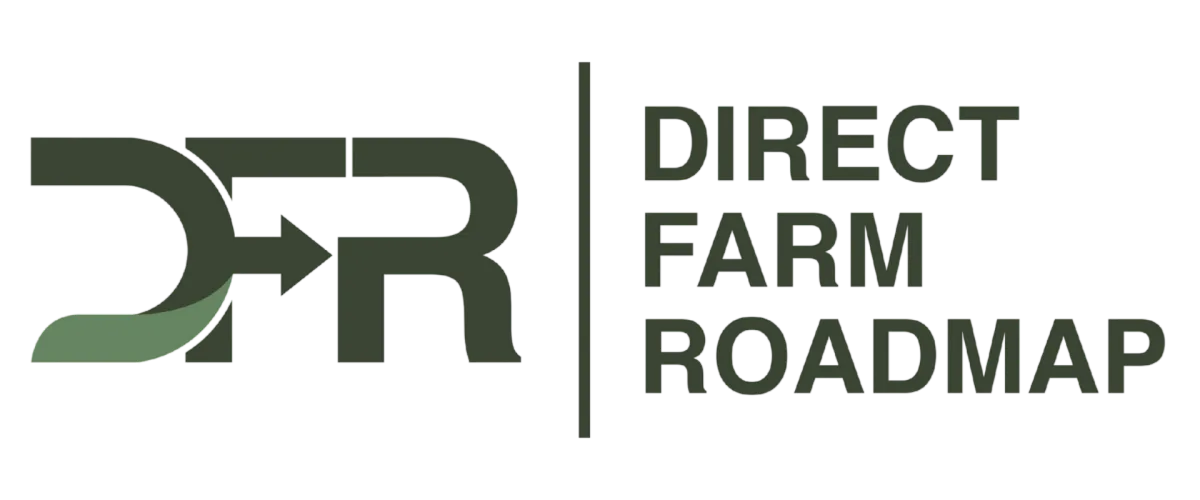Terms & Conditions
1. Introduction
Welcome to Direct Farm Marketing, a DBA of Bethel Marketing LLC ("Company", "we", "our", or "us"). By accessing or using our services, including marketing infrastructure building, digital assets, consulting, and coaching services, you ("Client", "you", or "your") agree to be bound by these Terms of Service ("Terms"). If you do not agree to these Terms, please do not use our services.
2. Services Provided
We provide a range of services, including but not limited to:
Building marketing infrastructureProviding digital assetsConsulting servicesCoaching and training
3. No Refunds Policy
Due to the digital nature of our assets and the information provided through our services, we do not offer refunds. All sales are final. By purchasing our services, you acknowledge and agree to this no-refund policy.
4. No Guarantee of Results
We do not guarantee any specific results from the use of our services. While we provide tools, strategies, and training to help you achieve your business goals, the actual results are dependent on your efforts, execution, and various other factors outside of our control. Testimonials provided are real but do not guarantee similar outcomes for all clients.
5. Client Responsibilities
As the business owner, you are responsible for:
Executing the strategies and training provided by us.Making all final business decisions.Running your business operations.We build systems and provide guidance, but you must implement and manage these systems effectively to achieve your desired results.
6. Changes to Links
All links provided by us are subject to change. We are not responsible for any inconvenience caused by such changes.
7. Intellectual Property
All digital assets, training materials, and other content provided by us are the intellectual property of Direct Farm Marketing, a DBA of Bethel Marketing LLC. You are granted a limited, non-exclusive, non-transferable license to use these materials for your personal business purposes only. You may not reproduce, distribute, or otherwise exploit these materials for any commercial purposes without our prior written consent.
8. Limitation of Liability
To the fullest extent permitted by law, Direct Farm Marketing, a DBA of Bethel Marketing LLC, shall not be liable for any indirect, incidental, special, consequential, or punitive damages, or any loss of profits or revenues, whether incurred directly or indirectly, or any loss of data, use, goodwill, or other intangible losses, resulting from:
Your use or inability to use our services.
Any unauthorized access to or use of our servers and/or any personal information stored therein.Any interruption or cessation of transmission to or from our services.
Any bugs, viruses, trojan horses, or the like that may be transmitted to or through our services by any third party.
Any errors or omissions in any content or for any loss or damage incurred as a result of the use of any content posted, emailed, transmitted, or otherwise made available through the services.
9. Indemnification
You agree to indemnify, defend, and hold harmless Direct Farm Marketing, a DBA of Bethel Marketing LLC, and its affiliates, directors, officers, employees, and agents, from and against any and all claims, damages, obligations, losses, liabilities, costs, or debt, and expenses (including but not limited to attorney's fees) arising from: Your use of and access to our services.Your violation of any term of these Terms. Your violation of any third-party right, including without limitation any copyright, property, or privacy right.Any claim that your use of our services caused damage to a third party.
10. Governing Law
These Terms shall be governed and construed in accordance with the laws of the State of [Your State], without regard to its conflict of law principles.
11. Changes to Terms
We reserve the right, at our sole discretion, to modify or replace these Terms at any time. If a revision is material, we will provide at least 30 days' notice prior to any new terms taking effect. What constitutes a material change will be determined at our sole discretion.
12. Contact Us
If you have any questions about these Terms, please contact us at: Direct Farm Marketing, DBA Bethel Marketing LLC, 5767 Bethel rd. Clermont, Ga.
Email: [email protected]
Phone: 770-758-8751
What we do.
We connect 100,000+ qualified prospects looking for financial advice, lending, protection, debt help and claims to advisors and brokers every year.

It's all about the numbers.
As a performance marketing agency driven by data, our comprehensive approach ensures promoting successful results, consistently aiming for a positive return on your advertising expenditure.
500+
Project Delivered
$60M+
In Partner Revenue
10,346
Positive Reviews
What We Do
Your proven customer acquisition system that increases conversion rates at every step of the customer journey so you can enjoy record breaking sales.
Effective Lead Generation
Strategically focused on high-intent leads generation tactics from Google, Bing, & YouTube.
Database Reactivation
Turn your old data into fresh appointments and sales, utilising our sales android that never rests.
Appointment Setting
Transform your contact rate and campaign profitability with our appointment setting sales android.
Blog
Your proven customer acquisition system that increases conversion rates at every step of the customer journey so you can enjoy record breaking sales.

From Freezer Overstock to Sold Out: Build a Waitlist for Your Premium Ranch Products
Overview
For ranchers struggling with unpredictable sales cycles and freezer inventory costs, the waitlist model represents a powerful shift in how you manage your business. This guide shows how forward-thinking ranches are transforming from constantly marketing unsold stock to managing waitlists of eager customers. By creating authentic scarcity, building an engaged customer community, and implementing automated systems, you can dramatically reduce storage costs while securing predictable sales for every processing date. Learn how successful ranchers are using waitlists to stabilize cash flow, command premium prices, and build deeper customer loyalty.
The Hidden Costs of Freezer Overstock
Most ranchers understand the obvious expenses of maintaining freezer inventory—electricity, freezer maintenance, and storage space. However, the true costs run much deeper. Each month that inventory sits unsold represents:
Declining product quality (even properly frozen meat has a prime window)
Tied-up capital that could be invested elsewhere in your operation
Stress and uncertainty about when products will move
Increased likelihood of eventually discounting to clear space
Time spent continuously marketing the same products
These combined costs can easily consume 15-20% of your potential profit margin. By contrast, ranches operating with a waitlist model typically see their storage costs drop by 75-85% while commanding 10-30% higher prices for their products.
Embracing Reality: Your Supply Is Genuinely Limited
The first mindset shift in building a successful waitlist is recognizing an important truth: your ranch cannot feed the world. You produce a genuinely limited quantity of premium product that deserves to be valued accordingly.
Authentic Scarcity vs. Artificial Urgency
Many marketing tactics employ fake scarcity ("Only 3 left!") to pressure consumers. This approach ultimately undermines trust. Instead, successful ranches embrace their authentic production limits:
Each animal produces a finite amount of each cut
You process a limited number of animals each month
Your land can sustainably support only so many cattle
Your values-based production methods inherently limit volume
This isn't a marketing gimmick—it's the reality of responsible ranching. When you communicate these natural limits transparently, customers respond with increased commitment rather than skepticism.
Case Study: How Transparency Transformed One Ranch's Business Model
A family ranch in Colorado struggled with feast-or-famine sales cycles until they began openly sharing their production calendar with customers. They published:
Their annual processing schedule (6 animals every 8 weeks)
The approximate yield of each processing date
Regular updates on how much capacity remained for each date
Within three months, they were fully booked for the next two processing dates and had started a waitlist for the third. Their average sale price increased by 15% without any official "price increase"—simply because customers recognized the value of securing their spot.
Building an Engaged Customer Base
A successful waitlist requires more than just collecting email addresses—you need engaged customers who understand your value proposition. Here's how to build that foundation:
Focus on Education Over Promotion
The most successful ranch waitlists are built on educational content that helps customers understand:
Why your production methods matter
How your practices differ from conventional operations
The nutritional benefits of properly raised meat
How to make the most of their investment (cooking tips, storage advice)
This approach attracts customers who value quality over price and builds the trust necessary for them to commit to future purchases.
Create Multi-Touch Educational Sequences
Rather than simply announcing when products become available, develop a systematic approach to nurturing customer relationships:
Day 1: Welcome email explaining your ranch's story and values
Day 3: Overview of your production practices and why they matter
Day 7: Guide to different cuts and their best uses
Day 14: Customer testimonials and success stories
Day 21: Explanation of your ordering process and waitlist system
This sequence transforms casual browsers into educated customers ready to commit when spaces become available.
Leverage Multiple Communication Channels
While email remains the backbone of most waitlist systems, successful ranches create multiple touchpoints:
Email newsletter (primary communication channel)
Private Facebook group for community discussion
SMS notifications for time-sensitive announcements
Physical mailers to high-value customers
Local in-person events to deepen relationships
A Texas ranch saw their waitlist engagement increase by 65% after adding a private Facebook group where customers could share recipes and cooking successes.
Setting Up Your Waitlist System
With an engaged customer base in place, you're ready to implement the technical aspects of your waitlist. The most successful approaches combine simplicity with automation.
Create Clear Ordering Windows
Establish a consistent rhythm for your sales cycle:
Set specific dates when ordering opens and closes
Maintain a predictable schedule tied to your processing dates
Communicate the timeline well in advance
Stick to your deadlines consistently
This structure creates natural urgency without manipulation. Customers learn that they need to act during the ordering window or risk waiting for the next cycle.
Implement a Two-Tier Waitlist Strategy
The most effective waitlist systems utilize a tiered approach:
Tier 1: Priority Waitlist
Previous customers who missed the ordering window
Prospects who have engaged with multiple pieces of content
Referrals from existing high-value customers
Receives first access when the next ordering window opens (24-48 hours exclusive access)
Tier 2: General Waitlist
New prospects who have shown initial interest
One-time previous customers
Receives access after the priority period if products remain available
This approach rewards customer loyalty while still providing opportunities for new relationships to develop.
Automate the Communication Flow
The key to making waitlists manageable is automation. Set up your systems to handle:
Automatic confirmation when someone joins the waitlist
Regular updates about their position and estimated availability
Immediate notification when the ordering window opens for their tier
Follow-up messages for those who don't respond to the initial opportunity
A Montana ranch reduced their administrative time by 75% by implementing automated waitlist communications while simultaneously increasing their conversion rate from waitlist to purchase.
Implementing Your Waitlist Automation
Here's a step-by-step guide to setting up an effective automated waitlist system:
Step 1: Choose Your Technology Stack
For most ranches, these tools provide the necessary functionality:
Email service provider with automation capabilities (Mailchimp, ConvertKit)
Online store platform with inventory management (Barn2Door, Shopify)
Optional SMS notification service (Twilio, TextMagic)
Simple CRM for tracking customer interactions (Airtable, HubSpot)
Step 2: Create Your Waitlist Signup Process
Develop a simple but effective signup process:
Clear form explaining the waitlist benefits
Collection of key information (contact details, preferred cuts, household size)
Immediate confirmation with expected timeline
Initial educational content delivery
Step 3: Build Your Automated Communication Sequence
Once someone joins your waitlist, they should receive:
Day 0: Confirmation and welcome
Day 7: Educational content about your upcoming availability
Day 14: Update on current waitlist status
Day 30 (and monthly thereafter): Continued engagement until ordering opens
Immediate notification when their tier's ordering window opens
24-hour reminder before their access period closes
Follow-up for non-purchasers offering assistance
Step 4: Create Priority Access Mechanisms
When it's time to open orders to your waitlist:
Generate single-use priority access codes for Tier 1 customers
Set inventory visibility settings to "hidden" for general public
Release access codes to Tier 1 with clear expiration timeline
After the priority period, release remaining inventory to Tier 2
Only after both tiers have had access, open to general public (if anything remains)
Measuring Waitlist Success
Track these key metrics to evaluate and improve your waitlist performance:
Primary Success Metrics
Waitlist Conversion Rate: Percentage of waitlist members who purchase when given the opportunity (benchmark: 65-80%)
Days in Inventory: Average time between processing and sale (benchmark: <14 days)
Processing Pre-Sold Percentage: Portion of your processing date sold before animals are processed (benchmark: >85%)
Secondary Optimization Metrics
Waitlist Growth Rate: Monthly percentage increase in waitlist size
Email Engagement Rates: Open and click rates for waitlist communications
Average Order Value: Typically increases with effective waitlist systems
Customer Retention: Percentage who rejoin waitlist after purchasing
Common Waitlist Pitfalls to Avoid
Learn from the mistakes others have made when implementing waitlist systems:
Overcomplicating the Process
Keep your system simple. Multiple tiers beyond two, complex point systems, or too many special cases make the system unmanageable and confusing for customers.
Inconsistent Communication
Waitlists require regular engagement. Customers who don't hear from you for months are unlikely to purchase when suddenly contacted about availability.
Failure to Enforce Deadlines
If you consistently extend "limited time" windows, you train customers that your deadlines don't matter, undermining the urgency that makes waitlists effective.
Neglecting the Educational Component
Waitlists work because customers understand why your products are worth waiting for. Without ongoing education, price sensitivity increases dramatically.
Conclusion
The transition from constantly marketing freezer inventory to managing a waitlist of eager customers represents one of the most significant business model improvements available to direct-to-consumer ranches. By embracing your authentic production limits, building an engaged customer base, and implementing automated waitlist systems, you create a more profitable and sustainable operation.
The most successful ranches have discovered that perceived scarcity isn't something to overcome—it's an asset to be embraced. When properly communicated, your limited production capacity becomes a compelling reason for customers to commit early and remain loyal.
Our agency specializes in helping ranchers implement these exact waitlist strategies to transform their sales cycle from unpredictable to predictable. We offer customized solutions aligned with your ranch's values and operations, from comprehensive strategy development to the technical implementation of automated systems.
Ready to transform your ranch from freezer-dependent to waitlist-driven? Contact us today for a free assessment to identify your highest-impact opportunities for building a successful waitlist system.
© 2025 Direct Farm Marketing All rights reserved.


